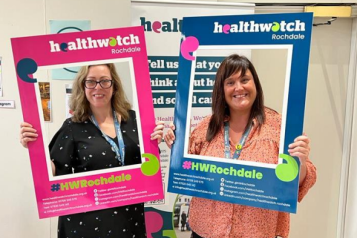Hospitals need to do more to show patients how the NHS is learning from mistakes, says Sir Robert Francis QC
Yet when it comes to complaints, many hospitals are too focused on process rather than demonstrating how they’ve listened.
A review of NHS trust complaints reporting for 2018 has revealed that just 16% of hospitals published stand-alone complaints reports which the current regulations require them to produce.
Healthwatch England’s review took other sources of reporting into account, including annual reports and quality accounts, but based on this publicly available information only 12% of trusts could be considered to be fully complaint with the regulations.
Reporting on learning from complaints was also not always obvious, with reports often stating simply that changes had been made but providing no detail on what precisely or how complaints have led to improvements.
Hospitals, indeed the NHS more broadly, need to shift the mindset on complaints. Reporting needs to look beyond the numbers and response times and focus more on how to effectively demonstrate to patients and the public what has been learnt. This is the only way to give the public confidence that their concerns are being listened to and acted on.
Complaints help hospitals to quickly spot and tackle issues, but our evidence shows that people will not complain if they lack confidence that NHS services will listen. Four in five people have told Healthwatch that seeing how other people’s complaints have had an impact would encourage them to make their own voice heard. Yet recent research from the Care Quality Commission reveals that over a third of people currently believe nothing would change even if they complained.
Healthwatch is calling for national leadership to support hospitals to effectively communicate how they are learning from complaints. Recommendations include empowering a single national organisation to act as a ‘complaints standards authority’, tasked with promoting good practice on learning from complaints and monitoring how well the complaints system is working to improve care for people.
Key findings
Local reporting on complaints is inconsistent and inaccessible
- All hospital trusts are reporting to NHS Digital on the numbers of complaints they receive; however, only a minority of trusts report any more meaningful data at a local level.
- Our analysis shows just 1 in 8 hospitals trusts (12%) are demonstrating that they are compliant with the statutory regulations when it comes reporting on complaints.
Staff are not empowered to communicate with the public on complaints
- All hospitals must produce an annual statutory complaints report but they are only required to make it available to people upon request. Yet we found that hospital complaints staff were often not aware of the reports or who could access them.
Reporting focuses on counting complaints, not demonstrating learning
-
Only 38% of trusts make public any information on the changes they’ve made in response to complaints.
- Much of this reporting is still only high-level, telling us little detail about what has changed and only stating that “improvements were made”.


